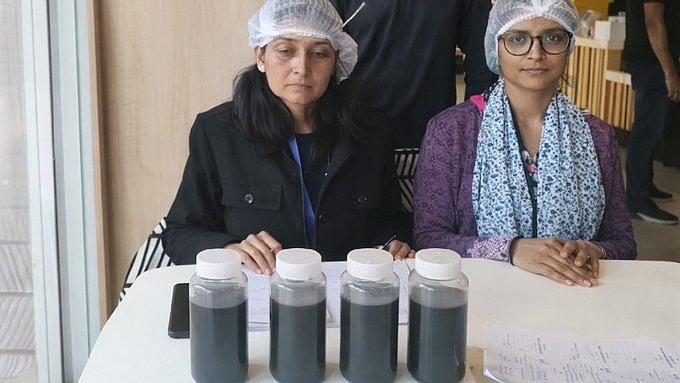Adolescents are at the cusp of being adults and have an understanding of how to emulate an adult but their mental development is still taking small steps from being that of a child to a grown person.
This does not mean that teenagers are children who are not meant to be taken seriously. On the contrary, they are bright and agile minds who have the potential to bring in new thoughts.
However, many adolescents are quashed under the sense of building an individuality way too fast that coaxes them towards alcoholism. Their need to prove themselves and a misguided sense of emulating what they think is right pushes them towards taking extreme steps.
Play of strokes
As per Dr. Eric Berne, founder of The Transactional Analysis Movement in Psychotherapy, every emotion, encouraging or defeating can be classified into a broad category of ‘strokes’. Every human, and not just a teenager, craves for some sort of a stroke or a reaction to feel valued or show their presence.
In the case of teenagers, they are in a psychological and emotional whirlwind in which they resort to activities that earn them attention and validation. These strokes can either be positive or negative, as long as they yield any sort of reaction.
Teenagers require heavy attention and if not catered to, they can resort to a plethora of activities leading to addiction. These activities are divided into withdrawal, rituals, past times, activities, games, and intimacy.
Withdrawal, as the name suggests, resonates with being a cocoon or a shell that will shield them from the world and disengage them from feeling anything at all. The feeling of detachment, with no one to turn to, can lead a teenager into finding solace of the numbness of alcohol.
Lack of intimacy or affection, especially from the parents can also account for the teenagers being felt left out. Peer pressure or from someone within the family can ‘inspire’ them to take up alcohol as a coping mechanism. They also end up mimicking those around them who themselves choose escapism as a solution for all their problems.
The inner voice of a teenager, or even an adult for that matter, plays a huge role in making a person or either breaking him. In teenagers, the voice is often an echo of those around them.
If nestled amidst a positive environment, the inner voice is encouraging. However, in contrasting situations, the inner voice is the one that brings the child down and as a result, they resort to alcoholism to quieten that voice.
Combating emotionally stimulated alcoholism
There are ways to turn the tables around on binge alcoholism and addiction in adolescents. It is all about building a better lifestyle and awareness with respect to mental health.
Here are some of the ways which may help:
Open culture in schools, college, and family
An open and healthy interaction in places like home, school/college, and social circle can help a teenager normalise the fact that it is okay to feel mental pressure and emotionally distraught and that help is always available when they need it. Alcoholism is not the way to go.
Creating a culture that supports mental health
Charity begins at home and so does the acceptance of mental health. Parents, teachers, and elders of a social group can create a safe space for teenagers to interact about anything that is bothering them. It is important that these adults are able to accept it without prejudices and judgements.
Parents to stop comparing children
The culture of encouraging the present qualities must take over the detrimental practice of parents pointing out their children’s weakness in the name of self-development.
Parents and teachers creating space for positive psychology Since parents and teachers directly influence the mind-set of the children, it is important for them to set a space that promotes positive psychology and mindfulness.
Exercise – Yoga & meditation
Exercise releases endorphins, also known as happy hormones which prepare the body to take on physical duress but also shapes the brain into taking any sort of mental duress.
Psycho-education from class KG till post-graduation
While the Indian education system is exemplary when it comes to creating credible engineers, doctors, and lawyers, it needs to create a student force which happy and mentally strong. It is, therefore, important to include psycho-education as a subject right from KG to higher education.
Family members taking mental support
As discussed, teenagers emulate what they see around them and if they witness an adult take mental health seriously, they too will take that path to self-care and emotional well-being.
Addiction arises from unresolved issues and unresolved issues arise from lack of communication. Integrating communication in daily life can help keep mental and psychological issues at bay which will avert a pathway to any sort of addiction.








